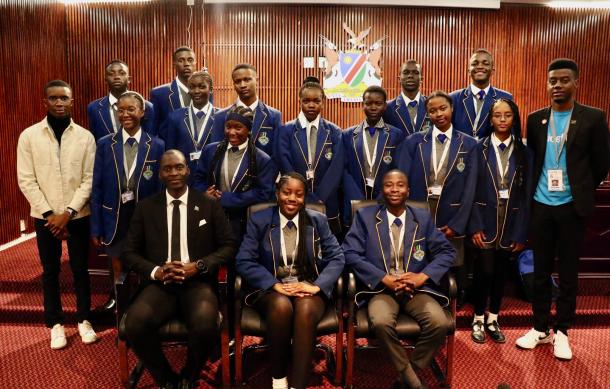
The 6th Children's Parliament's Standing Committee on Education and ICT voiced strong concerns about gender disparities, advocating for equal rights for both boys and girls.
They also highlighted issues with the new curriculum, calling for a comprehensive review to ensure it meets the needs of all learners.
The aspirant MPs held meetings within their respective Standing Committees to address these crucial issues.
These were the Standing Committee on Education and ICT; the Standing Committee on Health and Child Safety; the Standing Committee on Rights of Children and Climate Change; and the Standing Committee on Gender Equality, Marginalised Communities, Empowerment, and Social Welfare.
Considering the theme of the 6th Children's Parliament, which is "Transforming Education in Namibia," Chairperson of the Education and ICT Standing Committee, Gerson Neumbo, stated that the committee looks forward to tackling issues such as the high suicide rates among boys and equal education resource distribution to underprivileged boys.
"So, what we are trying to advocate for is gender equality in terms of boys and girls being treated the same. We are advocating for boys to be more dominant in vocational training centres, not excluding girls, since statistics show that the boy child is more neglected."
Neumbo further stated that the committee intends to introduce the gender and boy mental health awareness motion within this week's deliberations.
Vice Chairperson Yoniss Caetano emphasised that the committee cannot remain indifferent while many young children are driven to the streets by the current curriculum.
She vowed to advocate earnestly for the creation of a new curriculum that accommodates all learners, rather than reverting to the old one or merely making revisions.
"Even if you do have AS, you still have to come to Windhoek to do AS levels if you want to study abroad, so this problem comes in again. This AS only limits you. A-levels are very expensive, so who exactly is going to be the person who will take money out of their pocket to pay for this child? So this is the problem we have with this curriculum."





